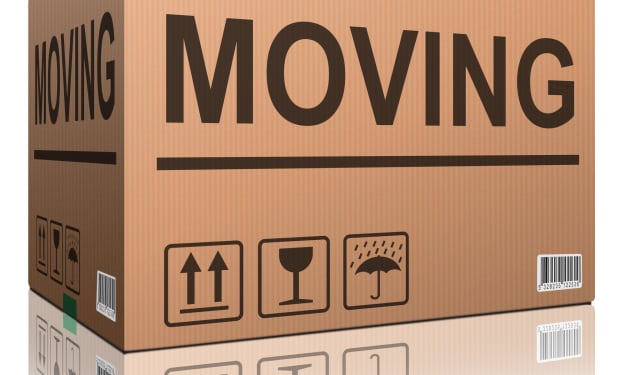How Does a Foreclosure Work
What you need to know about a real estate foreclosure.

The Guide to Understanding a Real Estate Foreclosure
If you have a mortgage, you will have heard the term "foreclosure", but what is it and how does it affect you?
As a homeowner with a mortgage, you don't fully own your home, the lender owns part of it. This means that your property has a lien from your lender, and could be used to cover the cost of the mortgage loan. This will often be the majority of the property's value, less the down payment, and foreclosure is the lender's method of avoiding loss.
What is a Foreclosure?
If you fail to pay your mortgage, as set out in your contract with the lender. you could end up in foreclosure. The foreclosure process is part of the legal protection the lender has, which lets the lender recover the loan amount given to the borrower.
If you end up in a situation where you are being threatened with foreclosure, losing your home is going to be very worrying. This will be particularly true if you don't understand the process. There are lots of folks who love to buy foreclosed homes. You don't want yours to be one of them!
Let's take a look at all the types of real estate foreclosures.
The Main Stages of Foreclosures?
There are five main stages of the foreclosure process. This process begins when the borrower fails to make their mortgage payments when they should.
Failing to Pay Your Mortgage
Whether intentional or through circumstances out of the homeowner's control, failing to pay the mortgage could trigger the beginning of foreclosure. If you find yourself in this situation and aren't able to pay, you should contact your lender to discuss the matter.
Some borrowers will intentionally go into foreclosure. If the value of the home has fallen below the mortgage amount, some people may decide it is better to stop paying. Normally, the borrower has found themselves in financial difficulties and simply can't continue with the monthly payments, however.
It isn't in the best interests of the lender to go through foreclosure on your home, as it costs them money and they might not be able to recover the amount they've lent. For this reason, they are likely to give you some options to get back on track.
Making it Official
If the borrower hasn't resolved the late payment situation, the lender will issue a public notice at the County Recorder's Office. This will normally happen after 3 to 6 months of late payments.
In some states, this notice will also need to be pinned on the front door of the home. This is done so that the borrower is fully aware of the impending foreclosure and that they should act to avoid it.
Pre-Foreclosure
Once the public notice has been issued, there is a period of pre-foreclosure. Lots of people refer to this as one of the first stages of foreclosure. This time, that could be between 30 and 120 days depending on the local rules, allows the homeowner to come to some arrangement with the lender. This could mean a short sale or the lender receiving the outstanding amount owed.
If payment is made, one way or another, the lender will end the foreclosure proceedings. If not, things move on to selling the home. There is a company called Realty Trac that keeps data of homeowners that miss payments on their mortgage.
If you have ever been on the real estate site, Zillow, you have probably been fooled into thinking there are homes for sale that actually aren't. This happens because Zillow publishes these homes that have missed mortgage payments in the homes for sale section of their site. Only in small print to you see the home is not really for sale.
Working as a real estate agent for the past thirty-three years, I can't even tell you the number of times a buyer has reached out on one of these homes that are not actually for sale.
So what's the point? Well, for many of these homeowners it is a really embarrassing situation to see their home marked for foreclosure.
Foreclosure Auction
A date will be set for the auction of the property if the lender isn't satisfied. This date will be registered with the County Recorder's Office and the homeowner will be informed. This information may also be printed in the local newspaper and posted on the property.
Even at this late stage, there can be a possibility for the homeowner to keep their property. Some states have a right of redemption, which means that if the money can be found before the hammer drops, the borrower can still keep their home.
Normally, though, the auction will continue with the property sold to the highest cash bidder. If the home isn't sold, an arrangement may be made with the borrower to take the property, known as a deed in lieu. Alternatively, the lender may just purchase the property during the auction.
In many instances, there will be a successful bidder at the auction. Buyers do need to be cautious when purchasing a home at auction because they are buying the property with any encumbrances on the title such as a lien.
Post-Foreclosure
If the home wasn't sold in the normal way during the auction, the home will now belong to the lender. This is known as either, real estate owned (REO) or a bank-owned property.
The lender has no interest in holding on to this property, as it is only costing them more money. They will try to sell the home by putting it on the open market, or offer it at another auction that is open to more potential buyers.
Most of the time when a bank owns a home due to foreclosure they will put it on the market with a real estate agent to sell. Typically, the home will be put on the market somewhere around what would be considered "fair market value". If after thirty days or so the property is not under contract, many banks will get aggressive with the price. It is when a bank has been holding a property for a while that you could get a great deal as a buyer.
Final Thoughts on Foreclosure Properties
If you own a home, striving to be fiscally responsible is always a critical exercise. Nobody wants to go into foreclosure. Sometimes life does get in the way, whether it is a loss of a job or a freak accident that drains your bank account. This is why it is always smart to have cash reserves when owning a home.
If you find you are falling behind financially, reach out to your bank and let them know what's going on. You might be able to work something out where payments are put off until down the road when you're more financially stable.
Other Valuable Vocal Real Estate Content
Get more helpful real estate advice in the previously published vocal real estate articles.
Moving box options - are you going to be moving in the near future? See all the various types of moving boxes you may want to consider. The article details all the options you have in choosing your boxes.
What to know about earnest money - when you are buying a home, you'll be required to put down money which is known as your earnest funds. These monies tell the seller your serious and provide protection in the event you default on the sale. Learn everything you should know about earnest money deposits.
About the Creator
Bill Gassett
One of the top RE/MAX Real Estate Agents in New England. A passionate writer who's work has been featured in many prestigious real estate publications including The National Association of Realtors, RISMedia, Inman News, and Credit Sesame.






Comments
There are no comments for this story
Be the first to respond and start the conversation.